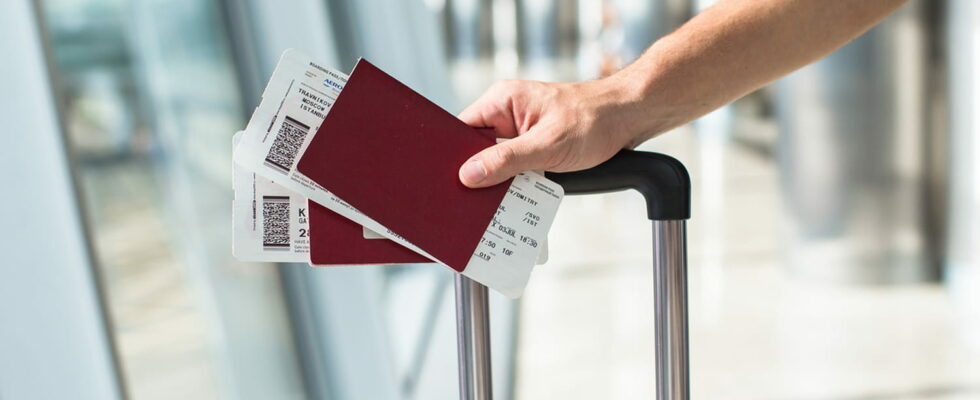Several countries are working on a dematerialized passport, stored directly on the smartphone. A function which has very practical advantages but represents a big challenge.
For several years now, identity papers and documents have tended to become increasingly dematerialized. In France, it is thus possible to store in your smartphone the digital identity card with France Identity, the digital driving license or even the Vitale card. But if this is already an ambitious project on a national scale, that does not prevent the countries of the world from looking into a project which is even more ambitious: the passport, an identity document to international dimension. The days of the paper passport are numbered!
Digital passport: no more need for a paper document
As reported Wiredairports in several countries are participating in tests aimed at allowing travelers to store passport data directly on the smartphone, and therefore travel without a paper passport. Here are the countries currently participating in this experiment:
- Finland;
- United Kingdom ;
- Italy ;
- The Netherlands ;
- Canada;
- UNITED STATES ;
- India ;
- United Arab Emirates.
For example, in Singapore, nationals can fly to and from the city-state without a passport, while foreign visitors can exit the country without the paper document. According to the Singaporean authorities, more than one and a half million people have benefited from this system. Likewise, in the United States, the Google Wallet digital wallet has recently officially supported passports, although this is currently only valid for domestic flights (see our article).
This system should allow travelers to store a digital version of the data already present on the biometric passport chip. Doing without paper documents should make it possible to speed up travel within airports. But this is far from an easy task, as it requires ensuring the security of the system end-to-end, while ensuring that authorities can read and store the information correctly.
Digital passport: sensitive data to protect
The technical processes are different depending on the country, but the way it works is the same. Thus, since 2009, passports have all been equipped with an NFC chip, which includes the last name, first names, date of birth, nationality, postal address, date of issue and end of validity, passport number, identity photograph and fingerprints. This involves storing this data locally in a smartphone, also equipped with NFC technology, and coupling this system with facial recognition.
The question of data security inevitably arises. Indeed, facial recognition is a delicate technology whose abuses are regularly denounced by associations. There is also the question of infrastructure, to know where the particularly sensitive data will be stored and who will be able to access it. And all the more so since countries do not have the same way of processing data, nor the same months or the same protection requirements.
For our part, the European Commission is working on a digital travel application “for people traveling to and from the Schengen area“. This new application “can be used by all EU citizens and third-country nationals holding a biometric passport or an EU identity card“, specified the Commission. But don’t expect to take advantage of it right away, as the EU doesn’t plan to roll out the app until 2030.
